#roman god
Text
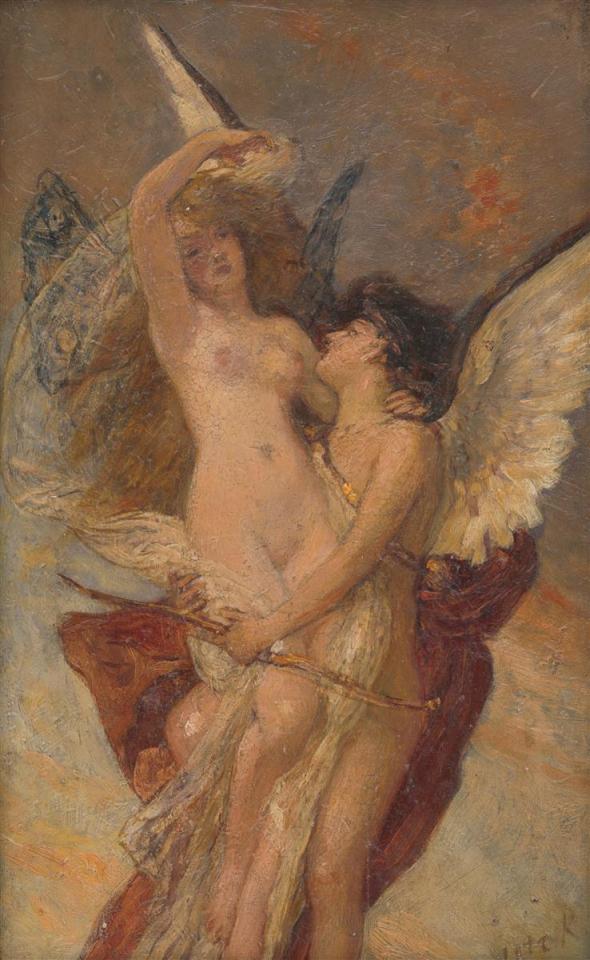
Amor a Psyché by Károly Lotz (1890)
#karoly lotz#art#paintings#fine art#19th century#19th century art#romanticism#romanticism art#painting#german art#german artist#mythology#roman mythology#cupid and psyche#cupid#psyche#roman god#classic art
2K notes
·
View notes
Text
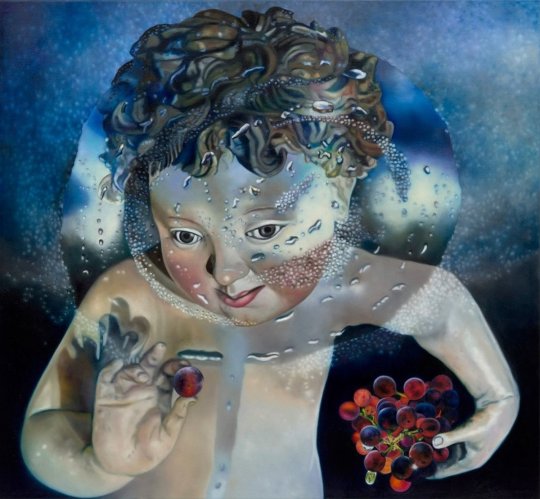
Untitled - Karin Kneffel, 2023.
German, b. 1957-
Oil on canvas , 120 130 cm.
58 notes
·
View notes
Text
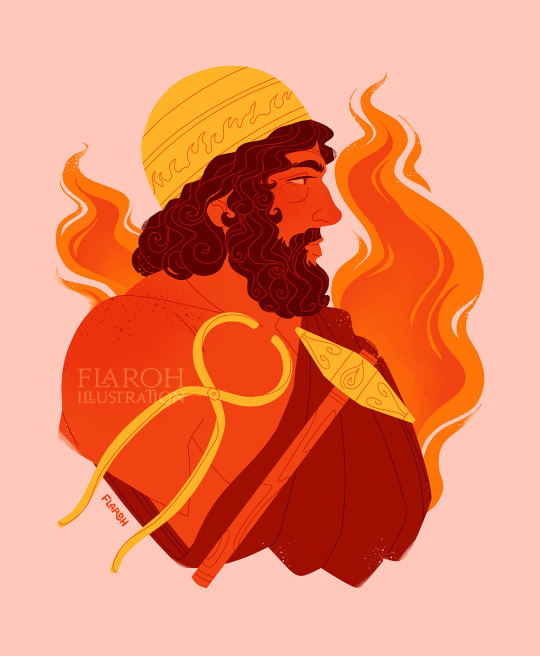
🔥Io Vulcanalia!☄️
On August 23rd the Romans celebrated the 'Vulcanalia', a festival dedicated to Vulcan. Like his Greek counterpart Hephaestus, Vulcan was a blacksmith who forged the weapons of the gods, but in his Roman form, he was mostly associated with fires, especially destructive ones, and volcanoes 🌋
During the Vulcanalia the Romans worshipped him by creating large bonfires and throwing fish and small animals into the flames, hoping to appease him enough to keep wildfire (common at that time of year) away from their settlements. Almost all temples to Vulcan were initially built outside of cities (eventually cities like Rome expanded around them), for fear that they would be originators of fires if the god was displeased.
I've depicted him in a warm orange and red palette, with his blacksmithing tools, a pilos hat, and flames in the background. I like to think he's the most hench of the gods with all his blacksmithing work, so I gave him a cheeky one-clasp chiton to show off the goods 💪
Prints and Merch [X]
#vulcanalia#flaroh illustration#tagamemnon#ancient rome#roman pantheon#roman god#vulcan god#hephaestus#roman paganism#paganblr
144 notes
·
View notes
Text









𝐓𝐡𝐞 𝐕𝐚𝐫𝐢𝐚𝐧𝐭𝐬 𝐚𝐧𝐝 𝐒𝐨𝐧𝐬 𝐨𝐟 𝐙𝐞𝐮𝐬/𝐉𝐮𝐩𝐢𝐭𝐞𝐫
Powerful, knowledgable, bold and arrogant. These men may be adventurous and go out to seek certain things, others are protectors, but all are quite independent. They don't mind being on their own. But all can be Kings. They have that quality utterly and completely.
𝑆𝑢𝑝𝑒𝑟𝑚𝑎𝑛
𝑁𝑖𝑘𝑜𝑙𝑎𝑖 𝐿𝑎𝑛𝑡𝑠𝑜𝑣
𝑇ℎ𝑜𝑟
𝐸𝑔𝑔𝑠𝑦
𝐾𝑖𝑛𝑔 𝐴𝑟𝑡ℎ𝑢𝑟
𝐻𝑖𝑔ℎ 𝐾𝑖𝑛𝑔 𝑃𝑒𝑡𝑒𝑟
𝑅𝑖𝑐𝑘 𝐺𝑟𝑖𝑚𝑒𝑠
𝐷𝑜𝑟𝑖𝑎𝑛 𝐻𝑎𝑣𝑖𝑙𝑙𝑖𝑎𝑟𝑑
𝑅𝑎𝑔𝑛𝑎𝑟 𝐿𝑜𝑡ℎ𝑏𝑟𝑜𝑘
#variant meme#variants meme#witchthewriter#witch the writer's moodboards#the variants of zeus#the sons of zeus#the variants#the variants and sons of zeus#the variants and sons of jupiter#the variants of jupiter#the sons of jupiter#zeus#jupiter#greek god#roman god#moodboard#greek mythology#ragnar lothbrok#vikings#dorian havilliard#throne of glass#sjm#rick grimes#peter pevensie#narnia#thor#mcu#marvel#dc#superman
115 notes
·
View notes
Text
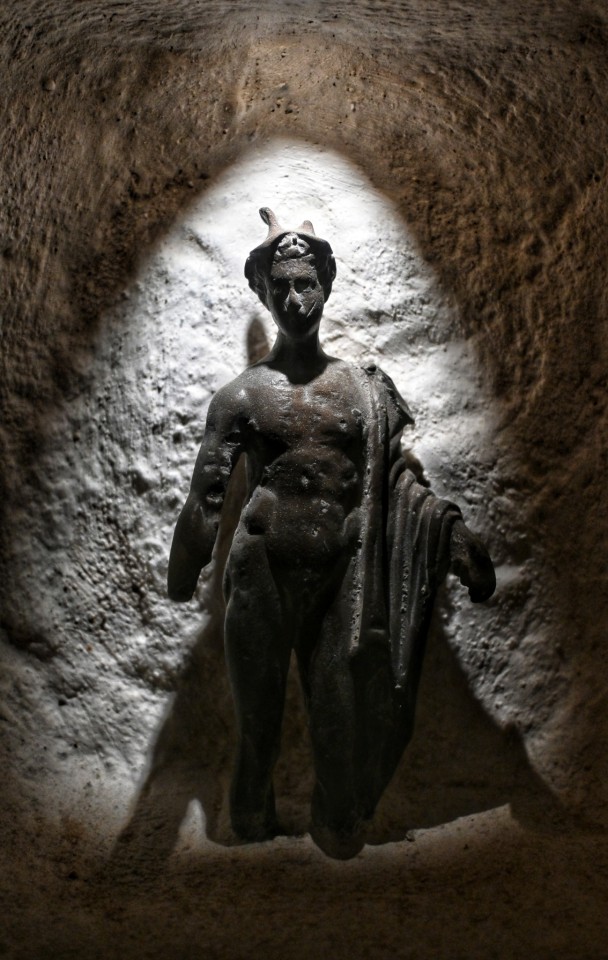
1st to 3rd Century CE Roman Figurine of Mercury, (Replica, Original found at Broughton Common), Hull and East Riding Museum, Yorkshire.
#roman#roman gods#roman style#romans#roman empire#roman britain#roman metalwork#roman belief#roman living#roman figures#roman design#archaeology#ancient culture#ancient craft#relic#artefact#statue#mercury#roman god
162 notes
·
View notes
Text


📸 julianarchangel
#torchio marry me#i want to tattoo this statue on me since i can't have him on my in person#unless...#call me#I'll be wandering along Tyber at night#just saying#måneskin#maneskin#ethan torchio#ethan maneskin#roman god
24 notes
·
View notes
Text

It's interesting how both the Greek and the Roman versions of the Sky fathers went on to become the sort of "supreme god" or the "King of gods" but in case of the Hindu version Dyaus only went on to become a minor deity that had only like a few mentions in the Rig Veda.
And now we mostly compare Zeus to Indra, instead of to Dyaus.
#justice for dyaus#he's my babygirl#i love him#you deserve better bro#mythology#greek mythology#greek myths#ancient greek mythology#greek gods#greek god#zeus greek mythology#zeus#zeus deity#zeus god#roman mythology#roman gods#roman god#jupiter#hindu mythology#hindu myths#hindu gods#hinduism#dyaus#indra#classical mythology#desiblr#hindublr#desi tumblr#desi tag#rig veda
13 notes
·
View notes
Text
And Minerva cupped Medusa's cheeks with soft, cold palms and whispered, "Let these men freeze in terror, for you are the monster they created, and I am the monster who failed to shelter you."
From the Latin root monstrum. . . . . to be a monster is to be a hybrid signal, a lighthouse: both shelter and warning at once.
#medusa#minerva#roman pantheon#the roman gods#roman goddess#the myth of medusa as we know it was created during the roman empire#the greek version states that medusa was a monster from birth#poseidon did not harm medusa y'all#neptune did it#and before you go saying oH bUt PosEidOn aNd NeptUne arE tHe sAme- no theyre not#please do your research#poseidon#neptune#roman god#greek gods#the greek pantheon#roman gods
21 notes
·
View notes
Text
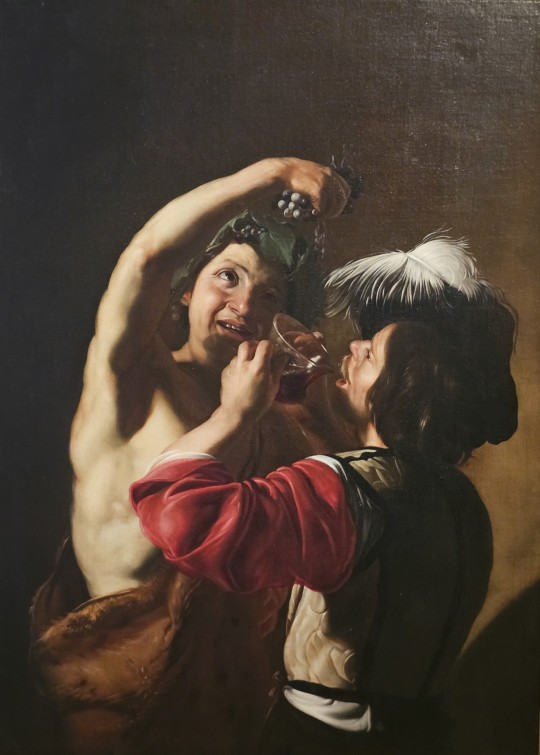
Bacchus and a Drinker; by Italian artist Bartolomeo Manfredi, 1621 | Held in the Palazzo Barberini
#painting#italian art#italian painting#bartolomeo manfredi#caravaggesque#caravaggism#bacchus#dionysus#17th century painting#17th century art#roman god
22 notes
·
View notes
Text

Finally catching up with Day 2 for my Legendary October challenge, my take on classicstober. This time, we got Mars Ares! Mars, or Ares Athena still calls him, was inspired by ancient artwork and statues, gladiators, books about Ares/Mars I read while doing my research, and the characters from Disney's Hercules like Hercules, Ares, and a bit of Apollo, who was coming to mind making the character. This may not be his final design, but I'll keep him like this for now. A behind-the-scenes post will be coming this weekend because I'm so behind on this challenge, LOL! My goal is for the rest of the day into tomorrow to finish up Zeus and Hera and post them together.
#legendary fugitives#god ares#god mars#ares#mars#artober#artober 2023#legendary october#classicstober#classicstober inspired#spooktober#art challenge#inktober#greek gods#greek god#greek mythology#roman gods#roman god#roman empire#roman mythology#classical mythology#alternate universe
12 notes
·
View notes
Photo

The Magic of Pan’s Flute by John Reinhard Weguelin (1905)
#john reinhard weguelin#art#paintings#fine art#1900s#1900s art#academism#academicism#academic art#painting#english artist#british artist#mythology#roman mythology#roman god#pan#faunus#tree nymph#dryad#classic art
1K notes
·
View notes
Text
Roman gods are not Greek gods: Vulcan
VULCAN
Vulcan is, just like Mars, another one of those Roman gods that is really exemplifying the gap between the two pantheons.
After the Hellenization of the Roman pantheon, Vulcan was… let’s say “reduced” to a smith-god, and attributed the role of forging the weapons of the gods and heroes, with his forges said to be in the volcanoes of Southern Italy. He became the patron and “father” of all blacksmiths, and the deity of metallurgy, the spirit of the forge. But his original characterization was very different from the one of the Greek Hephaistos, and the “volcano” association here is key.
Originally, Vulcan was the god of fire. Not the god of the smith, but the god of the flame. And not just any flame – the dangerous, destructive flame. If Vulcan is associated with volcanoes so much, it is because he WAS the god of the volcanoes – in fact one of his earlier names was “Volcanus”. This is why Vulcan’s cult was particularly strong in the volcanic regions of Italy, and why the military rites of Vulcan (as with all Roman gods, Vulcan has a war-related side – here, Roman soldiers offered him the weapons they stole from their enemies and defeated rivals) were also tied to volcanoes (one way to “offer” the enemies’ weapons to the god was by throwing them into a volcano). The volcanic association Hephaistos (or Hephaestus as English speakers call him) has in people’s minds actually mostly comes from Vulcan.
But he wasn’t just a god of lava: Vulcan was also the god of wildfires. In fact, it was the entire purpose of his cult in Rome. The reason the god was originally worshiped was so he could protect the city against destructive fires – he was Vulcan Mulciber (he who softens) and Vulcan Quietus (he who calms), whose role was to appease the fury of the flames. This is also why Vulcan’s temples were usually located on the borders of the city, for him to act as a protector of its limits, and why he was originally associated with watch-dogs – just like them, Vulcan was a “guardian” of Rome. Similarly, his main festival, the Volcanalia, happened at the heart of August, during the hottest and driest time of the year, very prone to wildfires – and appeasing Vulcan during this festival came hand in hand with celebrating his agricultural role as the deity who could protect crops from drought and heatwaves. To appease this wild, dangerous, destructive, prone-to-anger fire deity, people used sacrifices. Not human sacrifices mind you – but live animals were thrown into the fire to be burned alive. Vulcan was a “devouring fire” that needed to kill to be appeased, and so small animals and fishes were thrown into the flames to avoid having humans burned alive.
It was only because of Vulcan’s fiery nature that he was associated with the Greek god of the forge, Hephaistos, but as you can see Vulcan was originally a much more “natural” god, tied to disasters rather than crafts, and his cult was all about avoiding the harm he inflicted or pleasing the god so he wouldn’t let the world burn. Mind you, Vulcan wasn’t all about destruction – as I said in my Vesta post, the Romans perceived fire as a fertilizing element and a life-giver. As a result, Vulcan was also seen as a… well, fertile god, who kept fathering heroes, kings and monsters, usually through strange fire-related miracles (for example a glowing amber jumping out of a hearth and landing on a woman without burning her, making her pregnant with Vulcan’s child ; or a phallus forming itself out of the ashes). As you can note, Vulcan had a hearth connection, just like Vesta – and in fact the two deities were often depicted together as a fire-duo, metallurgic and domestic fire, destructive and civilizing fire, to the point they were sometimes depicted as an actual married couple (despite Vesta’s eternal virginity). Vulcan was also sometimes given the goddess Maia as a female companion and/or wife, the goddess of the growth of plants, highlighting again the fire’s “fertilizing” nature.
Even with Vulcan’s Hellenization, his fire nature stayed VERY strong – for example his mythological children rarely have any affinity with metalworking, but rather are said to control fires, breathe flames or be crowned by fire that doesn’t burn… And since the Hellenization spread the god’s duty to the “users” of fire, like smiths, Romans also started to see him as the patron of ANY job that uses fire – for example it was attested that Vulcan was the god of all oven-users. Cooks, bakers, confectioners, they were all Vulcan’s.
Many things came with Vulcan’s Hellenization: his role as a maker of weapons and jewelry for the gods, his appearance as an ugly and lame god, most of his legends were just the Greek tales of Hephaistos rewritten… And some even theorize that maybe Vulcan’s position as the son of Jupiter and Juno was a projection of the Greek myths. Indeed, there are records in the pre-Hellenized Roman religion of an unnamed god that gave birth to Jupiter – and people theorize that Vulcan might have been this god originally. The many strange tales of Vulcan impregnating women through “fire miracles” that somehow still left them virgin seems to be tied to this original tale of Vulcan being born of the union of a mysterious god and a “virgin goddess”, and the fact Vulcan’s two main consorts were earth-goddesses (Maia and Vesta) led to people thinking of a primordial “fire and earth” couple of deity that ruled over the pantheon at first, before leaving place to the Jupiter and Juno couple. This theory also goes along with other theories and hypothesis that interpret early Vulcan as either a lightning god (and thus a proto-Jupiter), and/or as being originally a sun god (hence his worship at the hottest part of summer, and how his original association with heat and fire might have started). Of course, these are just theories, and some less considered than others, so take all of that with a grain of salt. The only thing we are certain of is that originally Vulcan was the god of volcanoes and wildfires, before becoming the god of the smith and the forge to fit into the “Hephaistos mold”.
#roman religion#roman mythology#roman god#greek god#hephaistos#hephaestus#vulcan#roman gods are not greek gods
37 notes
·
View notes
Text

2023Janus2024
As the year is ending and we are starting 2024, it is Janus time, Roman god of beginnings, transitions, doorways, passages, and endings.
Crossing that threshold to the new year, I want to wish you all an amazing New Year and a strong start to 2024. Hope this year gets better and better for everyone and creates many fun memories!
Cheers
#hrsart#hellredsky#illustration#character design#original art#Janus#roman god#2023#2024#new year 2024
6 notes
·
View notes
Text
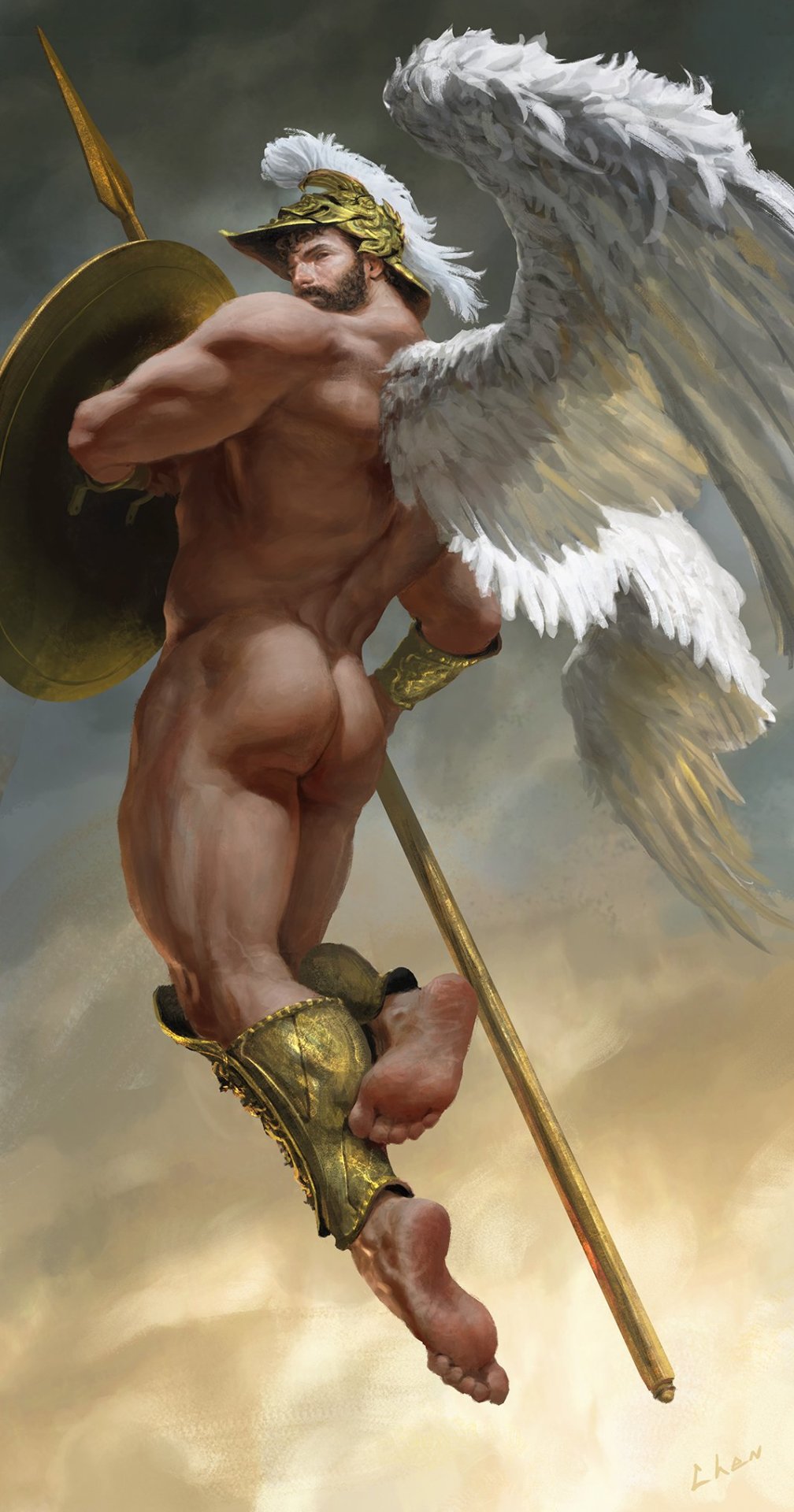
10 notes
·
View notes
Text


Two carvings of the Roman god, Mars, in sandstone and mudstone, Segontium, Caernarfon, St. Fagans National Museum of History, Cardiff, Wales
#roman#roman fort#segontium#caernarfon#roman god#mars#roman belief#roman deity#roman culture#roman army#roman empire#relic#stone carving#ancient design#ancient craft#ancient culture#wales
62 notes
·
View notes
Text

Today, I’m giving you all a WIP sketch dump of Dea Roma, or Roma, the youngest daughter of Jupiter Zeus and Juno Hera. To describe Roma’s role in Legendary Fugitives, her role is similar to Crosshair in The Bad Batch. Roma is very upset that a certain event to celebrate her becoming a Parthenos was ruined and was overshadowed by Athena’s and Mars’s fight and accidental death of the Caesar. Thus, she’s chasing her disowned siblings across the Empire.
#legendary fugitives#roman mythology#dea roma#roma#roman goddess#roman god#jupiter zeus#jupiter#god jupiter#god zeus#zeus deity#zeus#juno hera#juno#hera#goddess hera#hera deity#alternate universe#steampunk#bronzepunk#steampunk au#bronzepunk au
6 notes
·
View notes